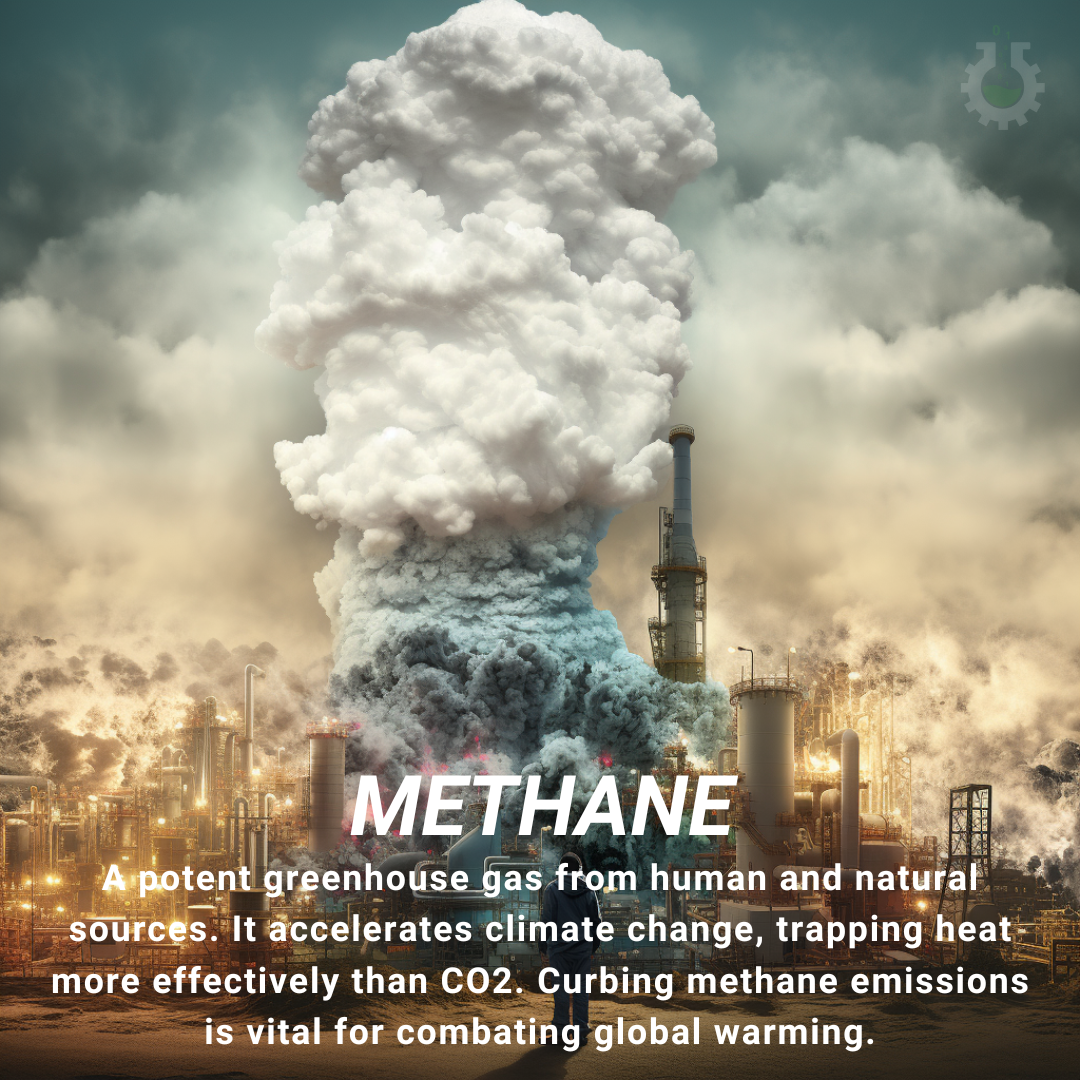September 4, 2023
Climate Change Poster Collection of the Day – Methane
Book a Demo
Today’s Climate Change Poster Collection features Methane, a chemical compound with the formula CH4, may be the simplest alkane but holds a significant place in our lives and environment. It is the main component of natural gas, an essential resource in many industrial and domestic processes. However, despite its utility, methane brings with it a set of challenges and concerns.
Firstly, it’s important to note that methane, despite being odorless, colorless, tasteless, and non-toxic, is a highly flammable substance. It can effortlessly form explosive mixtures with air, making handling and transportation a task that demands utmost care and precision. Most of the methane we use or encounter is released during the production and transport of coal, oil, and natural gas. Other notable sources include livestock and agricultural practices, and the decay of organic waste, both of which contribute significantly to the global methane levels.
On the environmental front, methane is a potent greenhouse gas. It is more effective at trapping radiation than carbon dioxide, despite having a shorter lifespan in the atmosphere. This capability has been a significant concern for climate scientists worldwide, especially given the recent increase in the Earth’s atmospheric methane levels. These increased levels have been contributing to global warming, thereby exacerbating the already critical state of our planet’s climate.
Methane can be produced naturally or manufactured. Natural production occurs from the decomposition of plant and animal matter, while industrial processes are utilized for its manufacturing. Despite its environmental impact, methane is a crucial source of hydrogen in various industrial processes. It is also commonly used as a fuel for heat and light, underscoring its importance in our day-to-day lives.
However, the environmental implications of methane cannot be ignored. Its greenhouse effect is 25 times greater than carbon dioxide over a 100-year period, signifying its significant contribution to global warming. As our understanding of climate change continues to evolve, it becomes crucial to strike a balance between the necessity of resources like methane and the need for sustainable practices to mitigate its impact.
Discover an inspiring collection of climate change posters.



